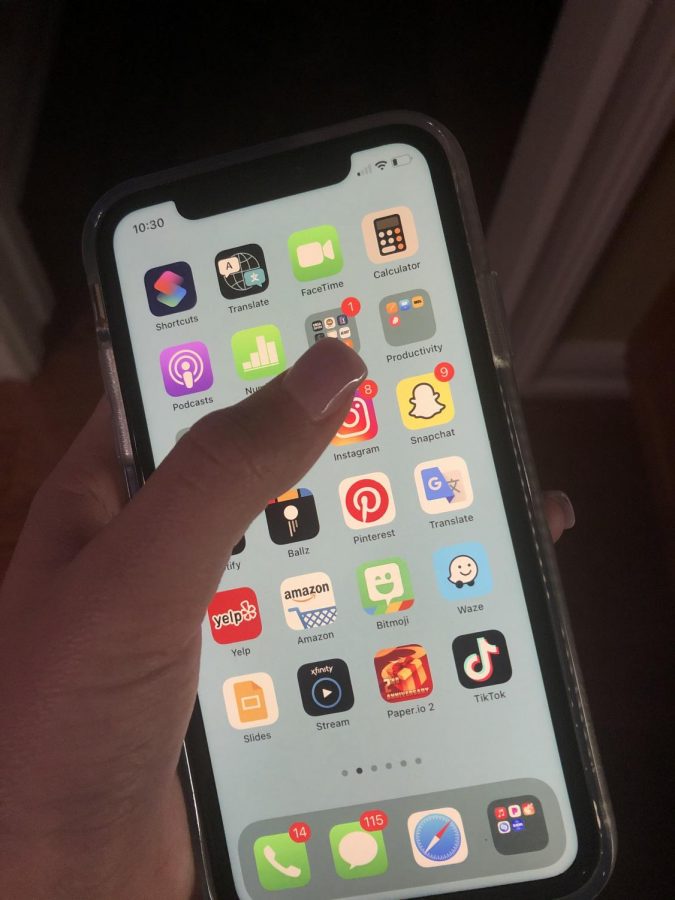Social Media: The Effect on Teens in 2020
December 3, 2020
It is said the four years you spend in high school are some of the best of your life–when you make key memories that last a lifetime. However, with the development of social media, key changes to the fundamental high school experience have occurred; these changes can negatively impact high school years for students of this generation.
Students surveyed around the school shared their screen times–the number of minutes and hours they spent on their phones throughout the day. Students averaged 7 to 8 hours per day–with some reaching up to 11 or 12 hours. These results are eye-opening and speak to the detrimental effects of social media on students’ everyday lives.
In some cases, half of a student’s day is spent staring at their screen. This leads to procrastination, sleep deprivation, and other dangerous impacts on mental health. This issue needs to be addressed and discussed more often, as many students have seen social media’s impact first-hand and understand what it’s like to feel addicted to your phone.
SHS junior Brooke Pierotti elaborated on how social media has impacted her social perception and interactions with other high school students. Pierotti described how the number of followers an individual has on social media causes prejudgement: “There is an initial judgment made by, I think, everyone when you view your peers’ social media and see their followers.” Pierotti added, “That initial thought isn’t enough for me to not want to get to know them,” which is a crucial positive takeaway and proves that despite many issues with social media, people don’t take what they view to heart.
Junior Ellie Snow echoed Pierotti’s thoughts, describing how social media affects students’ social and communication skills: “People are so uncomfortable with silence, so they go on their phones in uncomfortable situations like hermits and are anti-social.” Pierotti added, “I think apps create more confidence when talking to one another over the phone, which can potentially make it awkward while communicating in person.” This overall impact on students’ social skills isn’t addressed enough when discussing social media’s role in influencing students’ lives.
A high school parent addressed how social media has altered teenage development and compared today’s experience to her high school years. She stated, “I think social interactions that I had were overall more sincere, as I feel some kids today are more obsessed with likes, shares, etc., than the validity and sincerity of their friendships. But the way kids communicate, I acknowledge, is just different and it is done on the social media platform. Ours was face-to-face or voice-to-voice.” She went on to explain there is so much “social pressure to be what everyone else is. It’s become superficial and kids are too worried about what peers think rather than being their own person.”
Several students agree they wouldn’t mind not having social media if their peers didn’t as well. It all comes down to human nature and the value of friendships. The way we communicate as a generation has shifted and individuals have become vulnerable to the side effects of continually using apps like Instagram, Snapchat, and TikTok.
Members of our generation need to reflect and realize that life is more than social media and iPhones. Our generation needs to recognize everybody is worth more than the number of likes received on a recent post. As a community, we are not immune to these pressures, and we need to work together to ensure that social media doesn’t cut our teen experience and high school years short. We can still create genuine bonds and friendships.
